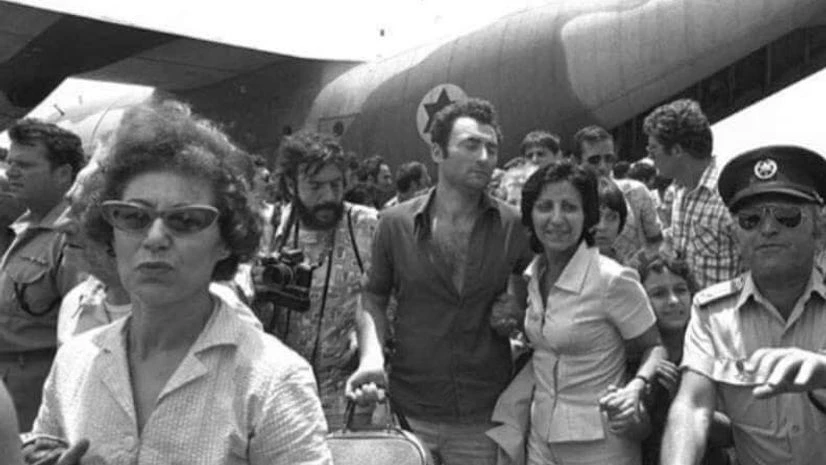June 4 marks the anniversary of Operation Entebbe, officially codenamed Operation Thunderbolt, and also known as Operation Entebbe or Operation Jonathan, as it completes 47 years today.
Operation Entebbe was a hostage-rescue mission by commandos of the Israel Defense Forces (IDF) at the Entebbe Airport in Uganda on July 4, 1976.
On June 27, 1976, an Air France Airbus A300 with 248 passengers was hijacked by two members of the Popular Front for the Liberation of Palestine – External Operations (PFLP-EO) and two members of the German Revolutionary Cells.
The hijackers had demanded the release of 40 Palestinian militants imprisoned in Israel and 13 prisoners in four other countries in exchange for the hostages.
Originating in Tel Aviv with the destination of Paris, the flight was diverted to Entebbe, the main airport of Uganda. The hijackers were joined by three other terrorists in Entebbe and received support from then Ugandan president Idi Amin and the Ugandan government.
The hijackers moved the hostages to a disused airport building and separated all Israelis and several non-Israeli Jews from the larger group.
More From This Section
Over the following two days, 148 non-Israeli hostages were released and 94 hostages, mainly Israeli, along with the 12-member Air France crew, remained as hostages.
The rescue operation
On June 4, the IDF acted on the information provided by the Israeli intelligence agency, Mossad, and planned a rescue mission.
The operation, which lasted about 90 minutes, took place at night. Israeli transport planes carried 100 commandos to Uganda for the rescue operation.
The Israel assault team landed at the airport and quickly approached the terminal. The hostages were kept in the main hall of the airport building, directly adjacent to the runway. Entering the terminal, the commandos shouted through a megaphone, "Stay down! Stay down! We are Israeli soldiers," in both Hebrew and English.
The commandos then entered the second room and shot dead the remaining hijackers, ending the assault. The team then destroyed Ugandan MiG fighter planes to prevent them from pursuing.
After killing the hijackers, the Israeli assault team began loading the hostages into the aircraft. The Ugandan soldiers then started shooting at them in the process and five commandos were wounded, and Israeli unit commander Yonatan Netanyahu, brother of present Israel Prime Minister Benjamin Netanyahu, was killed.
The team finished evacuating the hostages, loaded Netanyahu's body into one of the planes, and left the airport. All seven hijackers were killed, and around 45 Ugandan soldiers were killed.
Out of the 106 hostages, three were killed, one was left in Uganda for treatment (74-year-old Dora Bloch), and 10 were wounded. The 102 rescued hostages were flown to Israel via Nairobi, Kenya, shortly after the raid.
The aftermath
Following the Israeli raid, Ugandan commander Isaac Maliyamungu had 14 soldiers arrested under suspicion of collaborating with the Israel army and allegedly shot 12 of them with his pistol. Dora Bloch, a 74-year-old Israeli who was taken to the Mulago Hospital in Kampala was murdered by officers of the Uganda Army.
President Amin ordered the killing of Kenyans living in Uganda in retaliation for Kenya's assistance to Israel in the rescue mission. The Ugandan army killed around 245 Kenyans, including airport staff at Entebbe.
Awards
In 1976, Michel Bacos, the pilot of the Airbus, and the crew were awarded the National Order of the Legion of Honour, the highest decoration in France. The Israeli government also awarded them medals for heroism.
Commemoration
In August 2012, Israel and Uganda commemorated the raid at the Old Entebbe Airport, where Yonatan Netanyahu was killed.
Both nations renewed their commitment to "fight terrorism and to work towards humanity". In the ceremony, wreaths were laid and the flags of Uganda and Israel were flown side by side, symbolising the two countries' strong bilateral relations.

)
